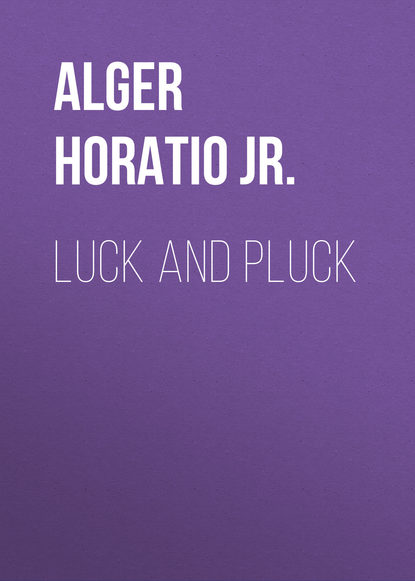По всем вопросам обращайтесь на: info@litportal.ru
(©) 2003-2024.
✖
Luck and Pluck
Настройки чтения
Размер шрифта
Высота строк
Поля
"I am afraid Mrs. Oakley won't let me go."
"But your father always meant you to go. She knows that."
"Yes, she knows it, for father used often to refer to the time when I would be in college, in her presence. But I am afraid that won't make much difference with her."
"Has she said anything about it?"
"No, not yet; but it will cost considerable to keep me at Cambridge."
"Well, your father left a good deal of property."
"Yes; but it was left to Mrs. Oakley."
"There's enough to pay your expenses at college, and maintain Mrs. Oakley and Ben handsomely."
"I know that, but I am sorry to say that Mrs. Oakley and Ben both dislike me, and it will be reason enough with them to keep me at home because they know I am anxious to go."
"It's a burning shame," said Sam, indignantly, "that such a woman as that should have the control over you. As for Ben Brayton, I always did despise him. He's a mean fellow, and a coward to boot."
"I don't like Ben much," said John.
"And he returns the compliment."
"Yes, he has taken a dislike to me, I don't know why, for I have always treated him well, though I couldn't like him."
"I say, John," said Sam, "if you don't go to college, it'll knock all my plans into a cocked hat. You were to room with me, you know."
"Yes, Sam, I have been looking forward to that a long time."
"What a jolly time we should have! I shan't have half so much pleasure in going to college if you don't go with me. You're such a good scholar, too, it would be a great pity. But perhaps it may not be so bad as you think. Mrs. Oakley may be only too glad to get rid of you."
By this time they had reached the door of the academy. The bell sounded, summoning the pupils to their morning exercises, and John and Sam had other things to think of, for a while at least.
At the close of the afternoon John returned home. He went into the house to carry his Virgil and Greek Reader, being accustomed to prepare a part of his lessons out of school. On going out into the yard, he saw Ben lounging lazily against a fence, whittling.
"Are you going out to ride, John?" he asked, in an unusually friendly tone.
"I think I will ride a little way," said John.
"I got enough of it yesterday," said Ben.
"You were unlucky. If you had not struck Prince it would have been all right."
"I don't care about trying it again. I hope you'll have a pleasant ride."
"Thank you," said John, unsuspiciously.
He went out to the barn, and opened the door that led to the stables. He made his way at once to Prince's stall, and looked in.
It was empty!
Surprised, but not yet suspecting what had really happened, he called out to Mike, whom he saw outside:—
"Where's Prince, Mike?"
"Shure, sir, didn't you know he was sold?"
"Sold? When?"
"This morning, Master John."
"Who bought him?"
"Mr. Barnes, the man that keeps the livery stable. He was here this morning. He and the mistress came in, and they soon struck a bargain."
John's heart swelled with anger and sorrow, but he asked, calmly:—
"Do you know what price Mr. Barnes gave for Prince?"
"Yes, Master John; I heard him say that he would give one hundred and ninety dollars. The mistress wanted two hundred; but she finally let him have Prince at that, and a good bargain it is to him too."
John left the stable outwardly calm, but much disturbed in mind.
"Mrs. Oakley might at least have let me know what she meant to do," he said, bitterly. "My poor father's gift too."
Ben waited for John's return with malicious interest. He wanted to witness and enjoy his disappointment.
"I thought you were going to ride?" he said, with a smile of mockery.
"Can you tell me where your mother is?" asked John, coldly.
"She's in the house, I suppose. Do you want to see her?"
"Yes."
John entered the house without taking any further notice of Ben. He found his stepmother in the sitting-room. She looked up, as he entered, with a glance of satisfaction, for she saw that she had made him unhappy.
"Mike tells me you have sold Prince, Mrs. Oakley," he commenced.
"Yes. What of it?"
"As he was my horse, I think you might have let me know what you intended to do."
"Prince was not your horse," she said, sharply.
"He was my poor father's gift to me."
"Nonsense! He merely let you call him yours. The horse was mine."











